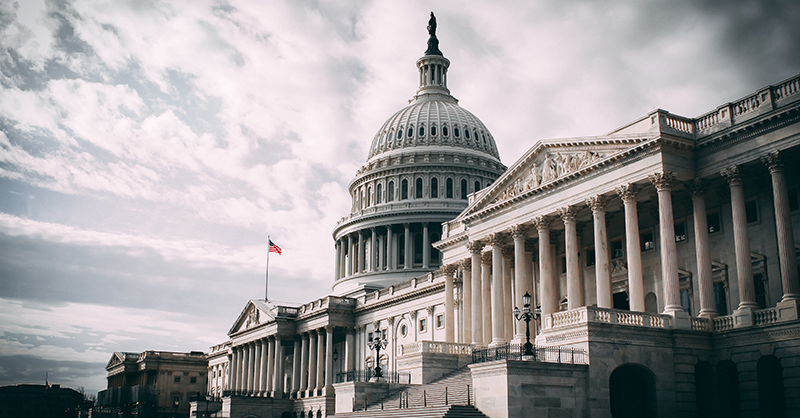Fate of antitrust legislation on Capitol Hill up in the air
29 August 2022 00:00 by Claude Marx

A key antitrust bill on self-preferencing faces an uncertain future as Congress approaches the final weeks of its session.
Democratic House and Senate leaders haven’t committed to holding a vote on the legislation. It seems they don’t want their members to take up a difficult vote if they aren’t sure it will pass.
The Senate bill is sponsored by Senate Judiciary Antitrust Subcommittee Chair Amy Klobuchar and Charles Grassley, a senior member of the Judiciary Committee. Klobuchar is a Minnesota Democrat and Grassley is an Iowa Republican.
The House measure is sponsored by House Judiciary Antitrust Subcommittee Chair David Cicilline, a Rhode Island Democrat, and Ken Buck of Colorado, the panel’s top Republican.
A spokesman for Senate Majority Leader Charles Schumer wrote FTCWatch that “Sen. Schumer is working with Sen. Klobuchar and other supporters to gather the needed votes and plans to bring it up for a vote.”
The House leadership hasn’t announced its legislative schedule for when members return in September. A source familiar with deliberations said they’re trying to find a compromise that can garner a majority of votes. Some California Democrats expressed concern that it unfairly targets large employers in their state.
The Senate is set to return on Sept. 6 but recess again in mid-October, so members can campaign in advance of the midterm elections. The House is set to return on Sept. 13 and recess on Sept. 30.
In January, the Klobuchar-Grassley bill passed the Senate Judiciary Committee by a bipartisan vote of 16-6, making it the first major bill on technology competition to advance to the Senate floor since the dawn of the Internet. A companion bill passed the House Judiciary Committee as part of a broader package of antitrust bills in June 2021. Another measure in the House package is the Open App Markets Act, which would force Google and Apple to allow third-party app stores and payment services on their devices and impose other app store rules.
Technology companies and their trade associations have opposed the Klobuchar-Grassley measure and made contributions to a major lawmaker. Other pushback came from a group of 16 law professors who raised concerns that the measure will cause more hate speech and online harassment.
“By banning a variety of activities that adversely affect certain business users of their services, the bill hands state attorneys general who feel that any service provider was treated unfairly a very powerful weapon to use in court. These attorneys general could argue that a platform’s decision not to carry hate speech or election misinformation is not about content moderation but self-preferencing or discrimination to favor themselves or their business users,” they wrote.
As written and amended in the Senate, the legislation would prevent Big Tech platforms from interoperating with their products, from requiring a business to buy their goods to receive preferred placement on their platforms, from misusing a business’ data to compete against them, and from biasing search results in favor of themselves. During the committee markup, lawmakers approved an amendment that clarifies that subscription services like Amazon Prime aren't covered by the bill.
The bill would also require the Federal Trade Commission and Department of Justice to issue guidelines on how they will enforce the bill within nine months of its passage, and give platforms a one-year grace period to comply.
It would need the support of 60 senators to dodge a Senate filibuster. The Senate has 50 Democrats and 50 Republicans.
Related Articles
No results found
